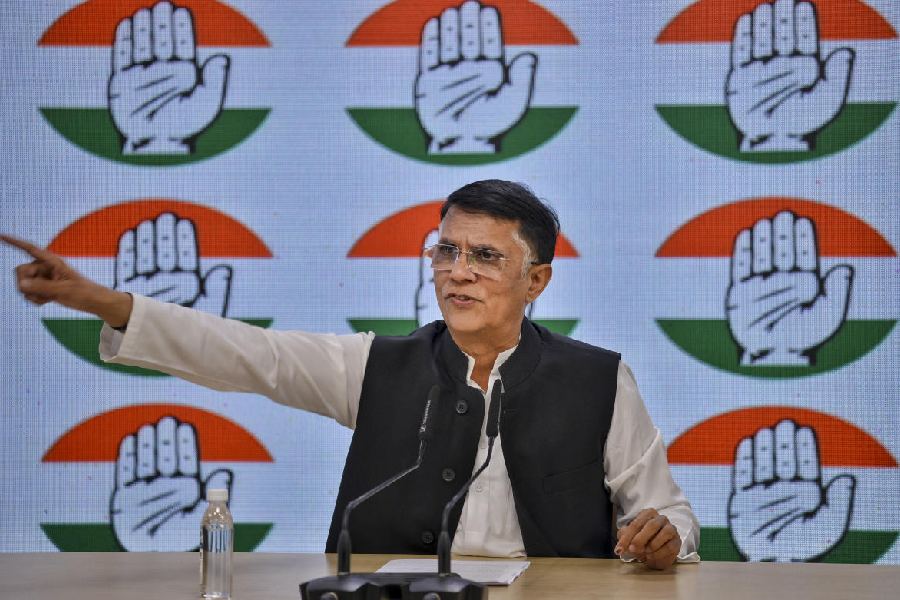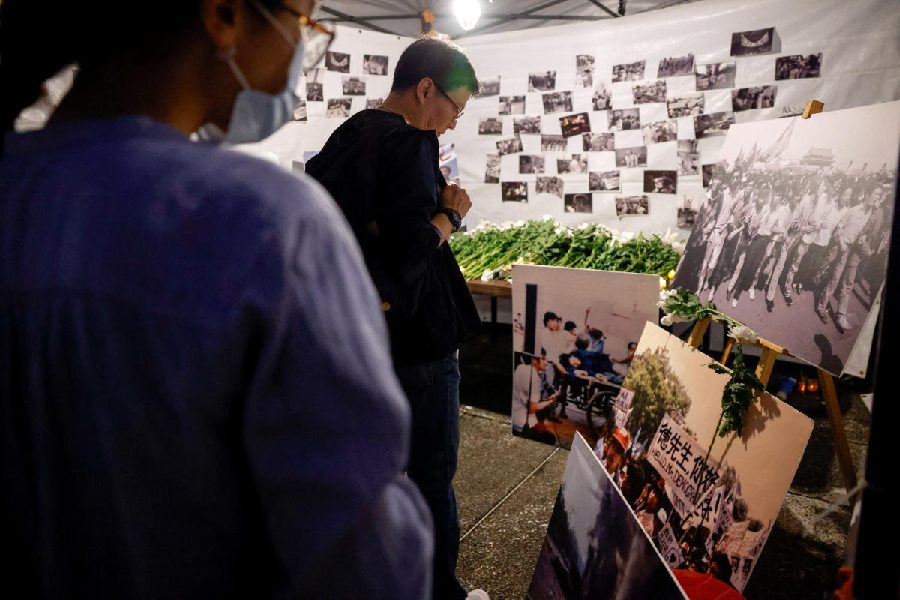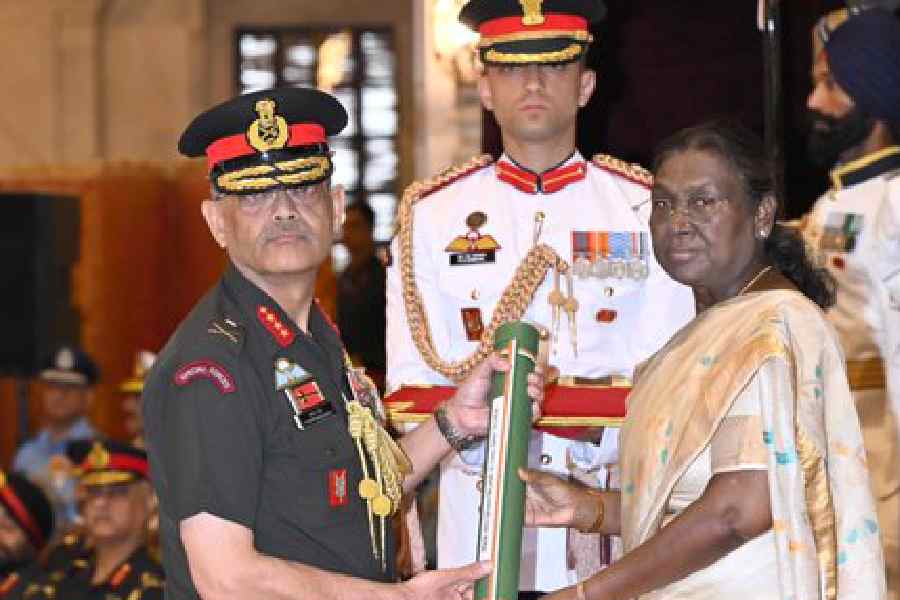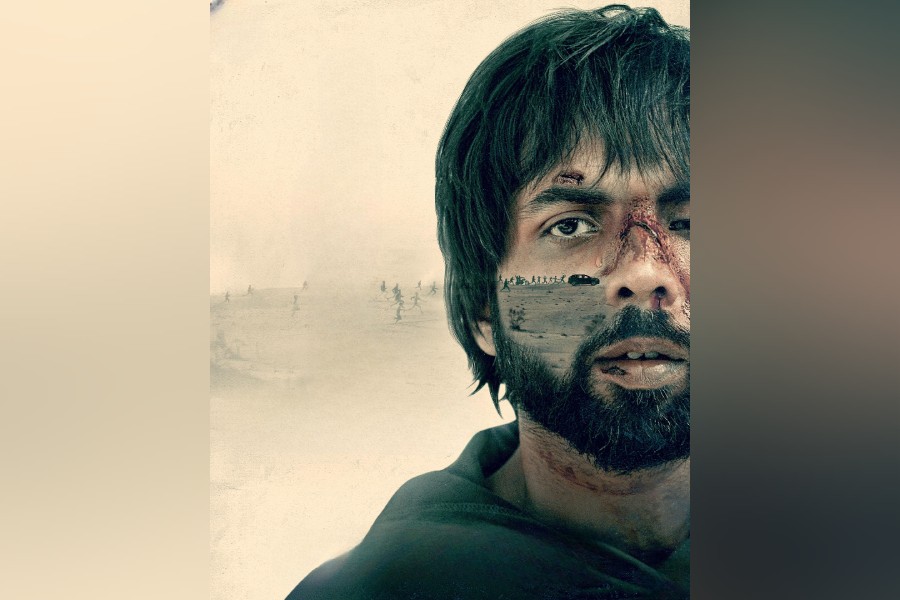 |
| Bonita. Picture by Lingaraj Panda |
Khatimunda (Bolangir), Aug. 30: Twenty-one years ago, a tribal woman in poverty-stricken Kalahandi sold her 14-year-old sister-in-law to a half-blind man for Rs 40 — just enough to buy 3 kg of rice and a sari.
Bonita’s sale to the poor and much older Bidyadhar seared the conscience of the nation and its Prime Minister — then Rajiv Gandhi — and she became the face of Orissa’s impoverished hinterland.
Little has changed since for Bonita, now a mother of five who lives in another man’s mud-house that can cave in any moment.
On Monday, as another Prime Minister announced a Rs 1500-crore package for the next six years for the state’s KBK (Kalahandi-Bolangir-Koraput) region, not even a ghost of a smile flits across Bonita’s wan face.
“The hut is not in our name, another man has allowed us to stay in it,” Bonita says, pointing to her home in Khatimunda village.
The local block development officer had assured her that she would be allotted an Indira Awas Yojana house only after spending money on its construction up to the plinth level.
 |
| Bonita’s husband Bidyadhar (right) with their son Nalin. Picture by Lingaraj Panda |
“I tried but could only lay the foundation, but they still did not give me the money to build the house,” Bonita says.
Now there is no land left to sow paddy. “What is the use of having government programmes, if it is only an empty promise,” she broods.
Had Manmohan Singh visited her, Bonita would have asked him for a house of her own. Her husband, 50-year-old Bidyadhar, nods.
“You people say you will publish our woes and our lot will improve,” he says. “But why doesn’t our fate change?”
Like the KBK districts that were promised a lot but given little, Bonita has always been the loser. Sold by sister-in-law Phanas Punji, who now lives in an Indira Awas Yojana house, she continued to live like a pariah because she couldn’t throw a community feast.
The marriage finally got community approval in October 2000 after a feast of mutton and rice, but Bonita has little to look forward to. Last year, she was even driven out when she went to ask for some rice from Phanas.
Bonita now keeps the home fires burning by working as a cook at the nearest anganwadi (child development centre), a 4-km walk across a bridge. Bidyadhar, half-blind from birth, sits at home all day.
Bonita works nearly eight hours a day and brings home Rs 500 a month. “Even that too is rarely handed out on time,” she says. “They pay once in three-four months, forcing me to borrow.”
Poverty has made the family appreciate small mercies. On Monday, on Nuakhai, the day the region celebrates the first harvest, Bonita bought new clothes for her three daughters.
 |
“They did not wear new clothes for a while, so I decided they must have it this time. But at least we all have eaten nuachawal (freshly harvested rice) today,” Bonita, dressed in an old sari, said.
Education is not on the family’s priorities. Elder son Kalin (12) has never been to school and tries to help the family by working as a cowherd for others.
Younger son Nalin (9) works in a moneylender’s house so that the family can repay the Rs 3,000 taken from him. He has to work for one more year.
“Bonita’s is a classic case of how those in power forget about people languishing in poverty,” says Bhakta Das, former MP of Kalahandi who arranged the funds for the community feast.
“There can be … grand announcements, but unless bureaucrats and ministers feel committed about making the goods reach the people, we will continue to find many cases like Bonita.”
The bitterness of having been sold still scalds Bonita. Two of her daughters, Kalabati and Jambabati, are 16 and 13.
“But I will not marry off my daughters unless they are 18,” she says. “What if people say that I sold them?”











